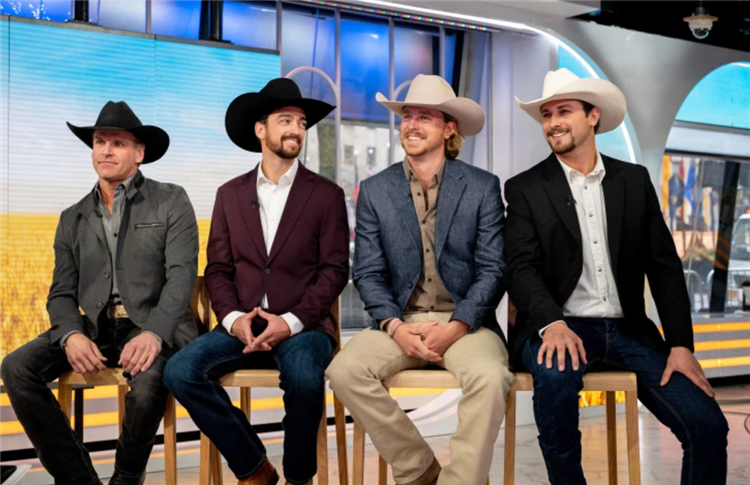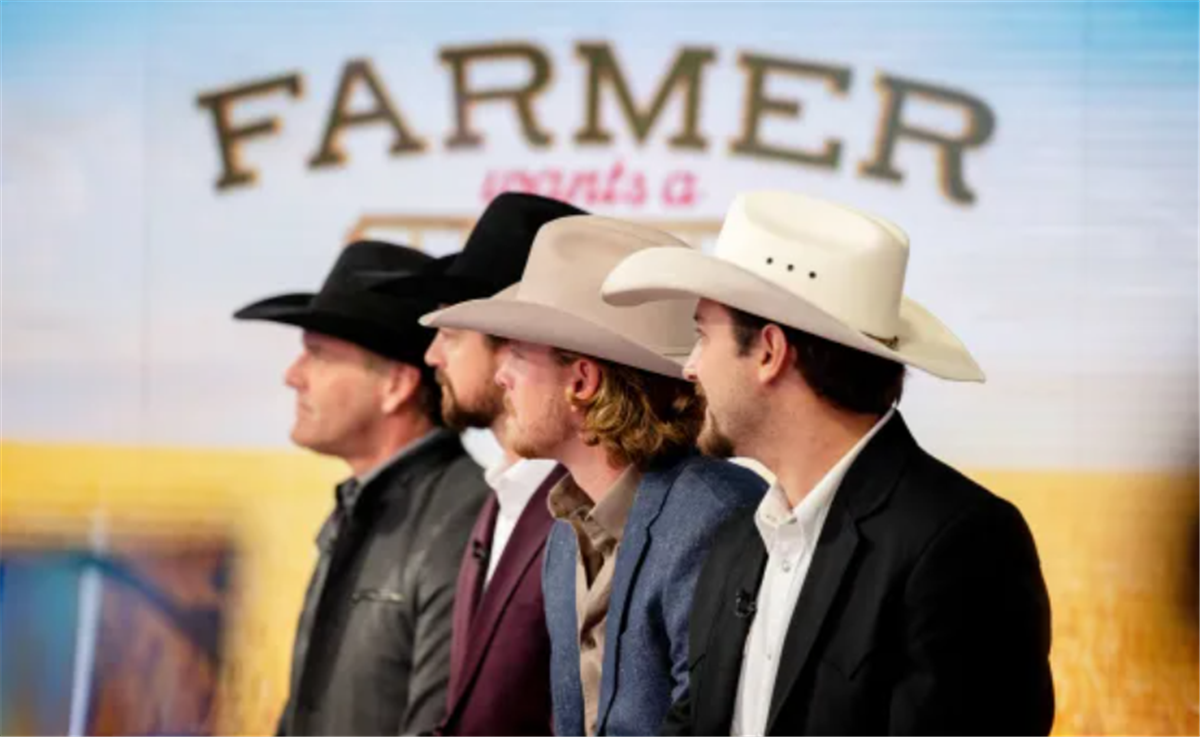Prospective partners on Farmer Wants a Wife are asked to give up their lives to support the farm – watching from home, I wonder why they would say yes
Afew episodes into the current season of Farmer Wants a Wife, one of the contestants, Farmer Dean, abandons his uteload of prospective love interests at the gate to walk across the red loam soil to check his watermelon crop. Watching from my couch in Cowra, I had two realisations.
The first was that Dean – who left the season halfway through – was probably a “real” farmer, unlike some the show has put up before. The second was that good farmers make less-than-ideal husbands.
The reality TV show is in its 14th season in Australia and follows six farmers (all men; a brief experiment in putting up a female farmer has not been repeated) and 48 women. The two-part finale aired on Monday and Tuesday. Each farmer throughout the season has abandoned their houseguests for the farm, one running off camera to a cow struggling to give birth a calf, another to yank a cow out of a dam.
Fan favourite Bert spends most of his time on screen managing a never-ending harvest of pineapples near the Queensland coast, before admitting he can’t balance finding love with managing his sprawling fruit farm in the foothills of the Glass House Mountains.
But it’s not the drama or romance that has set chins wagging in Cowra, in central western New South Wales, where I work as a rural journalist. We want to know how many acres they run or whether the farmer in question even owns the land seen on the show. We discuss the scandal a few years ago when one farmer’s place up the road in Canowindra was revealed to be in an Airbnb paid for by the show’s producers, when the purported owner actually lived an hour away in the regional city of Orange.
It lends a legitimacy to our nosiness: the show has tried to pull a fast one before.
In rural towns, everyone knows your business, for good or bad, and somehow everyone has a story about Farmer Wants a Wife. My own editor knows people in happy relationships approached to be on the show; our columnist Gabrielle Chan knows participants who have stayed together once their season ended.
It seems that half central west knows a Manwaring, the legacy farming family of 26-year-old Farmer Dustin from Condobolin. Even the Armidale Express put their own sports reporter, Ellen Dunger, on the front page when she travelled to Farmer Todd’s property at Baan Baa, near Narrabri, as a contestant.

Dr Chloe Fletcher, a researcher at the University of South Australia, says the reality show is a good opportunity to have conversations about what makes a good farmer and a good partner. With plenty of dates on the show relying on divining romance from the natural beauty of a farm, she says non-televised farmers could learn a thing or two about nurturing their own relationships from the program’s lush picnics and festooned dinners in the horse shed.
“When you’re living in a rural community, it’s not so easy to take your partner out for a date at a restaurant,” she says. “Instead, it might be checking the crop together or going for a walk in the paddock; whatever it looks like to spend quality time together.”
Her work has helped develop an online course to build healthier on-farm relationships, where the lines between romantic partner and business partner are often blurred.
“It’s important for people who are coming into a farm to understand what the lifestyle is really like,” she says. “It’s not going to be the same as the city … [Couples] need to look at how they can work together, what quality time actually means for both of them.”
The demands of farming are the central source of conflict on the show and that, says Fletcher, is true to life. “A lot of people think about farming as a way of life. It’s not just an occupation.”
Interrogating a prospective partner’s willingness to leave everything to settle on a property without a strong support network is a central theme, though it seems to sometimes backfire. Joe, a self-described “mountain man” from Bombala in NSW’s Snowy Mountains, spent several episodes asking the adventurous Keely if she’s really ready to settle down or if it’s “just another adventure she’d get bored of and want to move on from”.
The constant questioning of “is this what you really want?” rings true for this blow-in. I have been asked whether the country life is what I want at every turn since moving from Sydney: whether I’m patting sheep at the saleyards, or trying to understand the difference between forage and fodder crops, or accidentally kneeling in sheep poo in a hundred-year-old shearing shed, people want to know if I plan to stay.
I’m far from a farmer, or a farmer’s wife, but the idea of settling down on an acre or two with a few sheep and a decent veggie patch sounds great to me, despite the show’s depiction of rural life.
Fletcher says she hopes the “really great” parts of farming shine through the drama of making watchable TV.
Back on my couch, I cover my face with my hands as pineapple and dragonfruit farmer Bert chokes up, telling the producers on the fourth-last episode that he plans to leave.
“The farm never stops taking, there’s always more work to be done,” he says. “Before I start a relationship with somebody, I want to be happy with the farm, happy with my life.”
Staring into the middle distance, Bert and his beloved pineapple empire are all that’s left before the episode wraps.
“The fruit’s not going to pick itself.”
